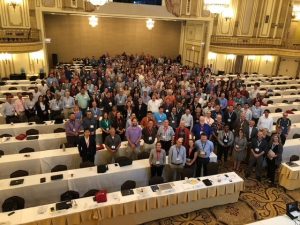The Gabriella Miller Kids First Data Resource Center has officially launched its Data Resource Portal, a powerful, open-source resource for research in pediatric disorders. The portal brings together clinical and genomic data related to childhood diseases, including pediatric cancer and birth defects, and enables researchers to collaborate with one another and analyze data in a secure, cloud-based environment.
The CRI is committed to several efforts to use cross-institutional data sharing to study and combat diseases, especially rare diseases such as pediatric cancer. We are proud to be part of the development of this important resource, with our Sr. Programmer Luca Graglia, MS, fully dedicated to the project. Read more about the Kids First DRC and our role here.


